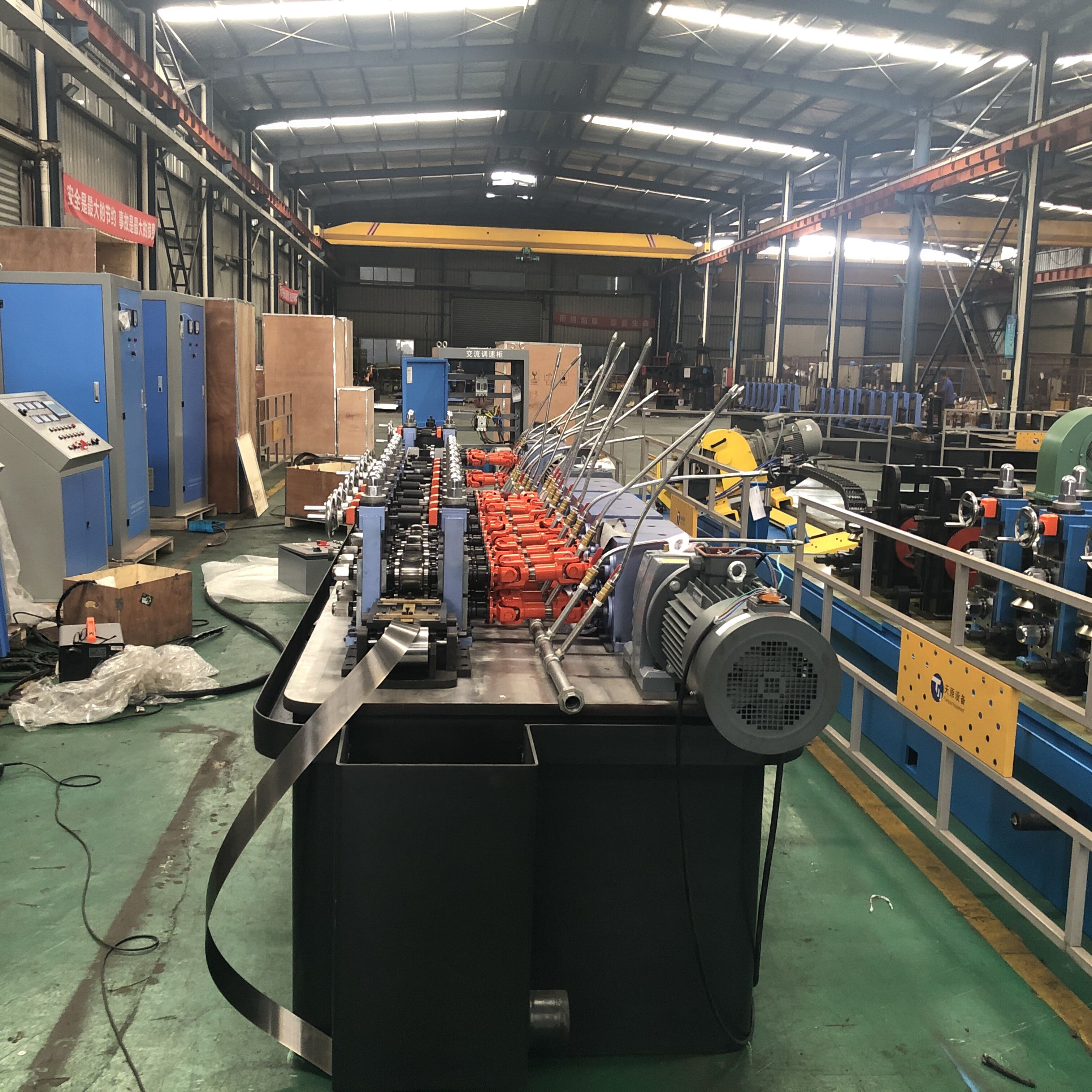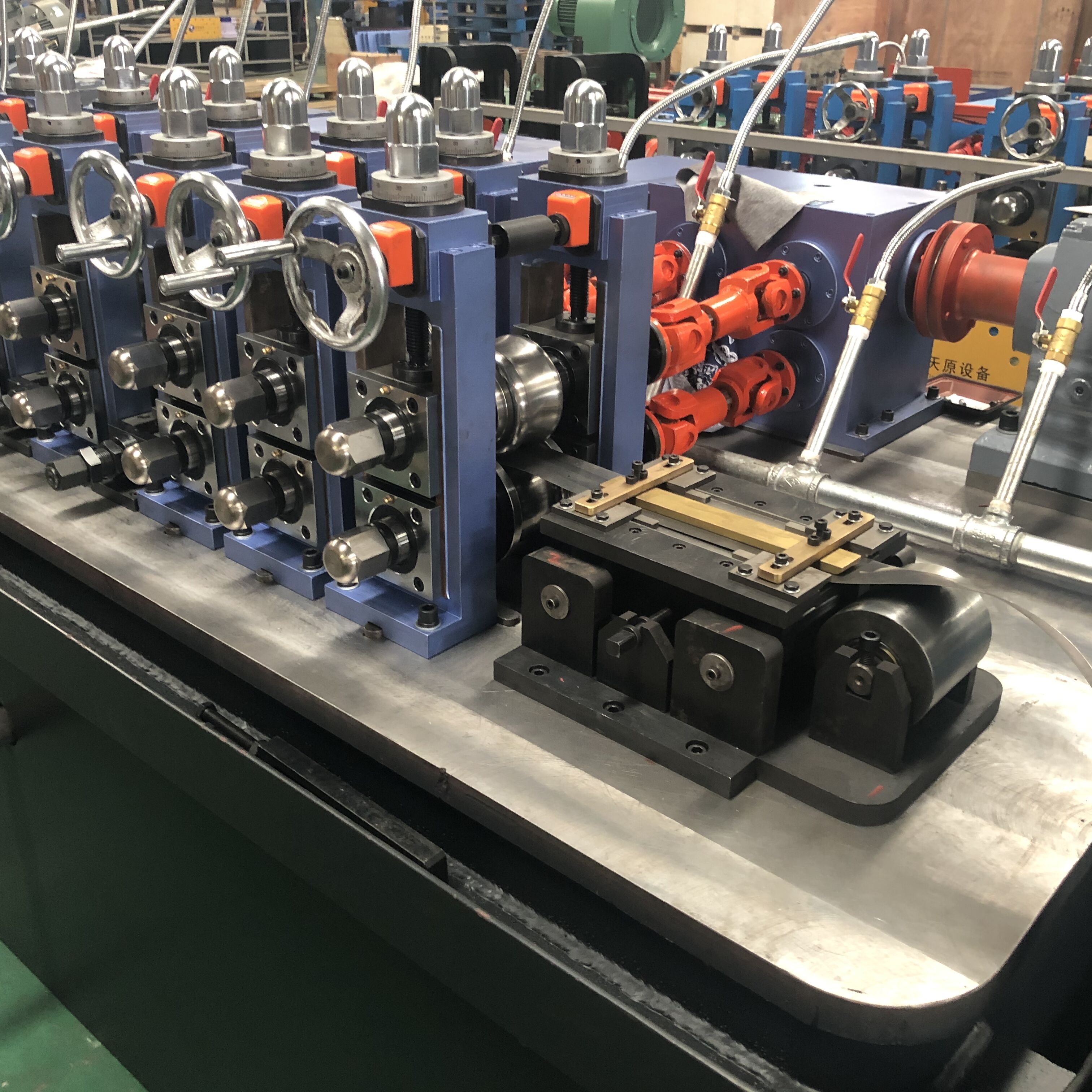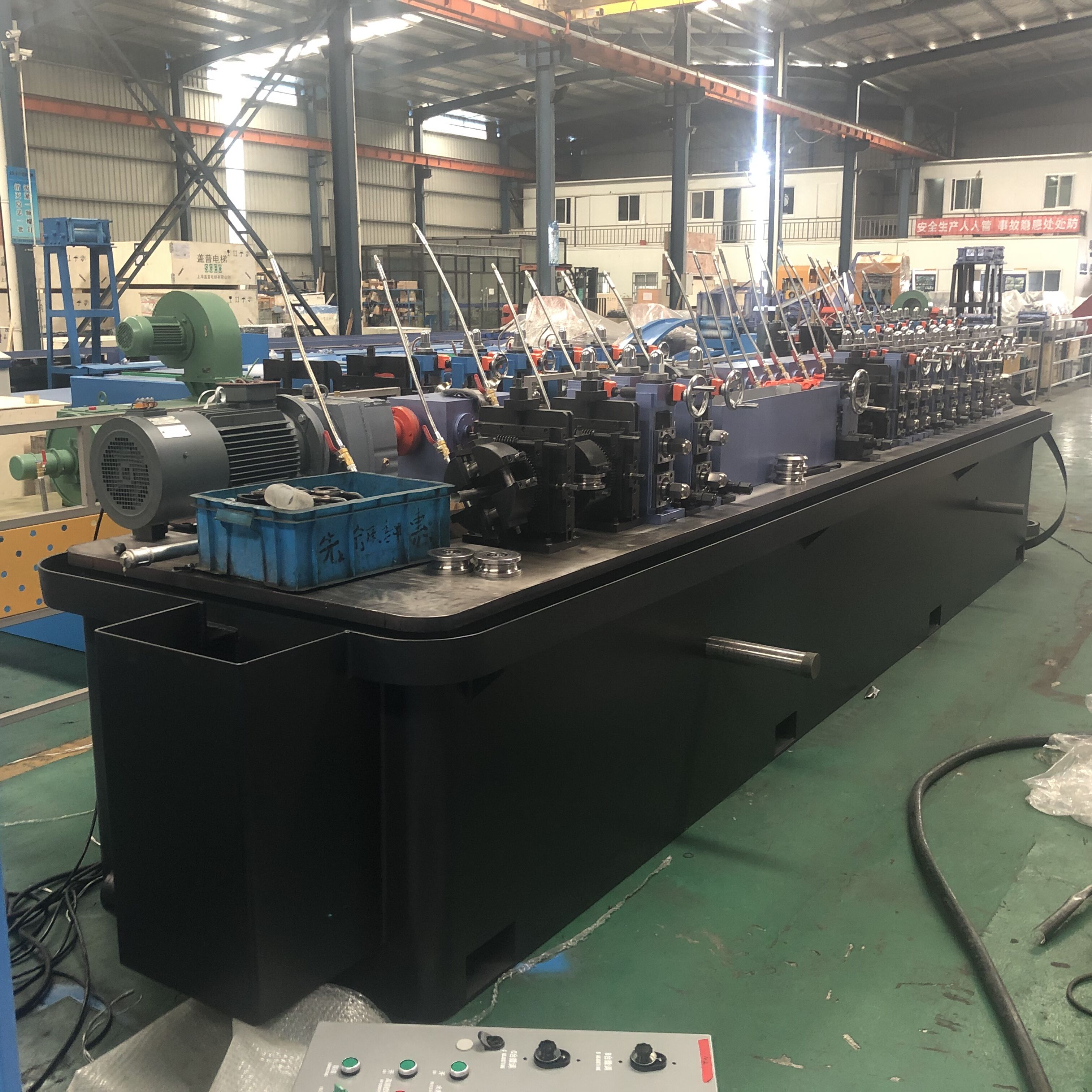erw mill
An ERW (Electric Resistance Welding) mill is a sophisticated manufacturing facility that specializes in producing high-quality welded steel tubes and pipes. This advanced system utilizes electrical resistance to heat and join steel strips along their edges, creating seamless, durable tubular products. The process begins with steel strips being carefully formed into a cylindrical shape through a series of roller dies. The edges are then precisely aligned and subjected to intense electrical current, which generates heat at the point of contact. This heat, combined with pressure from squeeze rolls, creates a forge-welded joint that is as strong as the base material. Modern ERW mills incorporate state-of-the-art technology, including automated controls, real-time monitoring systems, and precision measurement equipment to ensure consistent weld quality. The mill can produce pipes ranging from small diameters suitable for furniture to large pipes used in construction and infrastructure projects. The production line typically includes various stages of testing and quality control, such as ultrasonic inspection, hydrostatic testing, and dimensional verification, ensuring that each product meets rigorous industry standards. ERW mills are capable of high-speed continuous production, making them highly efficient for large-scale manufacturing operations.


